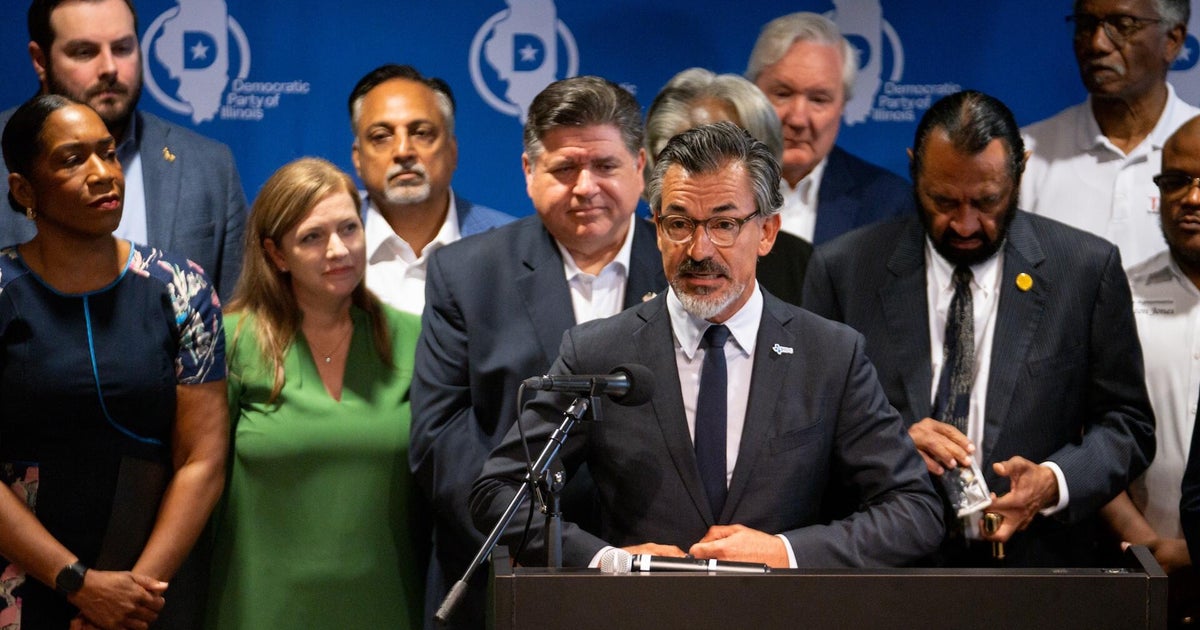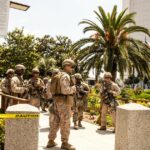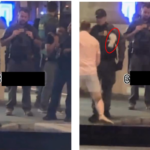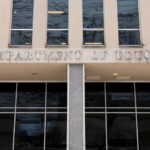In recent developments involving the highly contentious political landscape in Texas, a situation escalated dramatically when a group of Texas Democratic lawmakers, who had previously departed the state in a strategic move to delay a GOP-led redistricting bill, were thrust into a threatening scenario. This incident, a bomb threat, unfolded early one Wednesday morning at their temporary base of operations, a hotel situated in St. Charles, Illinois, a suburban area west of Chicago.
The St. Charles Police Department received an alert and dispatched first responders to the hotel at approximately 7:15 a.m. Upon their arrival, authorities conducted a meticulous search of the premises. Fortunately, after a thorough inspection, no explosive devices were discovered, and it was confirmed that the immediate danger had passed. In the meantime, a crisis management protocol was swiftly enacted, resulting in the evacuation of around 400 hotel occupants, ensuring everyone’s safety while bomb squad units thoroughly scoured the area.
According to statements from the police department, after confirming the hotel was free of any threats, the evacuated guests and staff were allowed to safely return to the building. This swift and efficient response helped avert a potential disaster.
The whole episode did not go unnoticed at higher levels of state governance. Illinois Governor JB Pritzker was quick to respond, condemning the threat of violence and assuring the public that such acts would be rigorously investigated. Governor Pritzker committed state police resources to pursue the matter fervently, aiming to find and hold accountable those responsible for inciting such fear and disruption.
State Rep. Ann Johnson, one of the impacted lawmakers, expressed her relief that no one was harmed during the incident. She highlighted the disruption caused by the bomb threat, which forced the legislators to evacuate their temporary place of refuge amidst critical political maneuvering.
Further complicative factors arose when it was revealed by Governor Pritzker that the exact location of the hotel where the Texas Democrats were staying had been exposed online. This situation was exacerbated by a right-wing podcaster who publicized a video showing the hotel and provided a map pinpointing its location, potentially encouraging hostile actions against the legislators.
This situation underscores the current harsh political climate, where legislative tactics and actions lead beyond the halls of governance into realms where personal safety becomes a concern. This specific group of more than 50 Texas House Democrats had originally left Texas for Illinois as part of a strategic move to prevent a quorum in the Texas House of Representatives. This was aimed at stalling proceedings on a bill proposing new congressional districts—a plan championed by Texas Republicans following a push from former President Trump. This redistricting initiative, taken mid-decade, which is unusual in timing, was perceived by Democrats as a power play to solidify Republican dominance in Texas, as new maps could potentially increase GOP-held seats in Congress from 23 to a more commanding figure.
As a countermeasure to bring back the Democrats, Texas officials, including Governor Greg Abbott and Attorney General Ken Paxton, escalated their attempts to compel the return of the absent lawmakers. Governor Abbott went as far as filing a lawsuit with the Texas Supreme Court aiming to oust State Rep. Gene Wu, whom he labeled as the “ringleader” of the attempt to break the quorum. Concurrently, Attorney General Paxton threatened to take legal action to declare the seats of non-returning Democrats vacant unless they resumed their duties by an imposed deadline.
The political drama intensified as national figures weighed in, with U.S. Senator John Cornyn, confronting challenges within his own party from Paxton, engaging federal resources by requesting the FBI’s involvement. Former President Trump also echoed the sentiment that federal intervention might be necessary.
This mixture of political strategy, legal threats, and now personal safety concerns paints a complex picture of the lengths to which political battles are fought in contemporary America. As the situation continues to evolve, the safety of the legislators remains a priority, alongside the broader implications of governance, representation, and power dynamics within Texas. With national eyes watching, the outcomes of these multifaceted disputes will likely resonate beyond state lines, influencing broader discussions about democracy, partisanship, and the rule of law.









